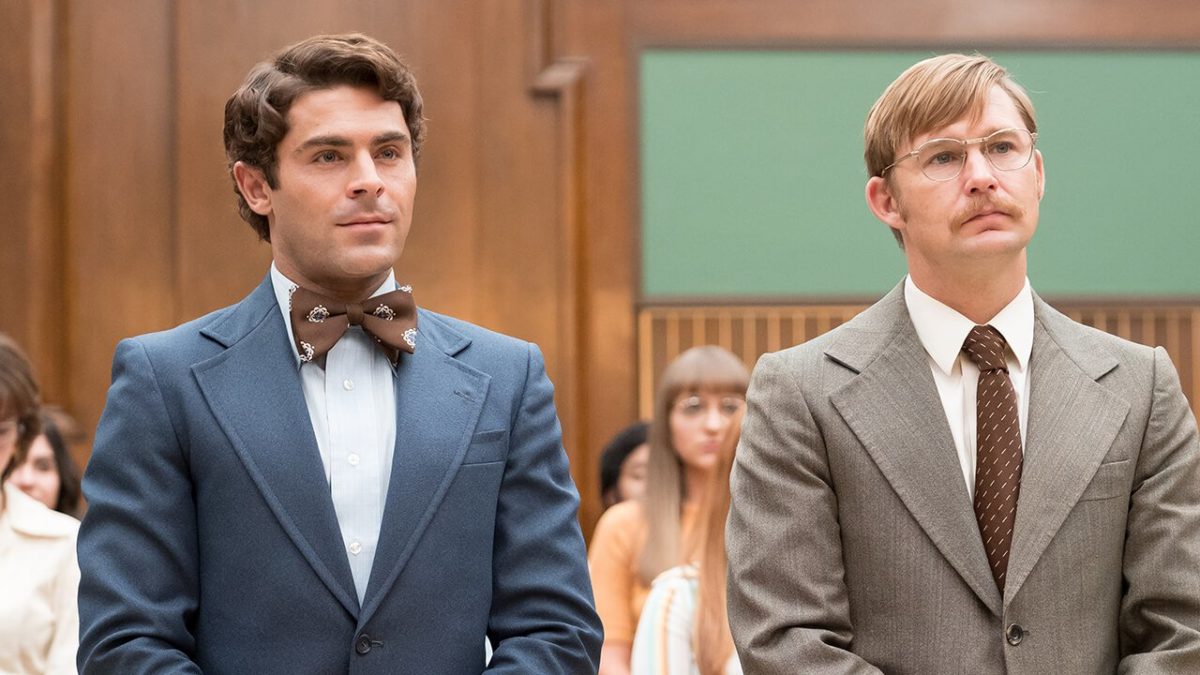The case, trial and conviction of Ted Bundy is one of the most intriguing and captivating in the history of serial killer stories. He stood out from his other notorious counterparts due to his extreme wit and charm whilst he defended himself in court, leading many to believe that such a man was incapable of committing the atrocious crimes that he was accused of. To bring such a unique case to be told on the big screen would take immense skill and carefulness to ensure that Bundy was portrayed as the monster he truly was, and unfortunately Extremely Wicked, Shockingly Evile and Vile fails to do so in all departments.
Based on the book by Bundy’s former partner Elizabeth Kendall and directed by Joe Berlinger, Extremely Wicked (which I will keep the film’s title shortened to) follows the relationship between Ted Bundy and Elizabeth Kendall from 1969 through to 1989. Berlinger, who had previously directed the Ted Bundy Tapes docu-series, took the helm to direct his first film outside of the documentary genre presumably due to a strong fascination with Bundy, a fascination which ultimately gives off all the wrong implications on screen. The biggest issue with the film lies in the portrayal of Bundy and the emotional implications of his interactions. Whilst it must be said that Zac Efron does deliver a great and convincing performance, imitating real footage of Bundy with brilliant accuracy, he is only able to do so to a limiting degree with the dialogue and direction he is given. Instead, the film asks only for you to see Bundy, a monstrous and abhorrent psychopathic killer, in his dashing persona that he fronted to convince others of his sanity and innocence. In this way, Bundy is made out almost to be the protagonist of the story throughout, with various scenes which seem to ask the audience to feel sympathetic for his ‘unfair’ conviction and treatment. It could be argued that this depiction is entirely intended, allowing the viewer to step into the shoes of people he managed to fool, but without a contrasted balance with scenes depicting his true nature, this provides no antagonism to be built around Bundy, as it rightfully should have been.
The only way in which the angle that Berlinger took would have worked would have been if the story was fictitious: leaving doubt in the viewer’s mind throughout regarding his innocence, thus leading to a dramatic and shocking ending revealing all of his crimes. Ultimately though, due to everyone’s familiarity with the story, we are left with a bland tale in which Bundy repeatedly declares his innocence, with no real emotional payoff to any of his actions. The arcs of the supporting cast are just as unconvincing and shallow as Bundy’s. There was such great potential to delve into the emotional manipulation and destruction of Bundy’s former partner Elizabeth Kendall (Lily Collins), but as before, the film fails to grasp this idea overall. Collins, just like Efron, performs brilliantly with what she is given, but it’s difficult to really feel her pain and doubtfulness due to her lack of screen time and weak dialogue. One excellent scene with Collins at the end is all that we are really offered, and her internal destruction throughout the film is never given great focus, making it difficult to develop much emotional attachment to her character.
Overall, Extremely Wicked offers some great performances from all of its cast, and very little else. The angle taken may work for some, as it aims to portray how Bundy used his superficial charm to trick and manipulate the public as well as supposedly you, the viewer, but this seems to offer nothing from a storytelling perspective, and nothing that a documentary couldn’t do better. This film could have succeeded far better as a murder mystery or a thriller, but instead churns itself out as a dull and forgettable courtroom drama. Maybe Berlinger should just stick to documentaries in the future.
Image Credit: Netflix

